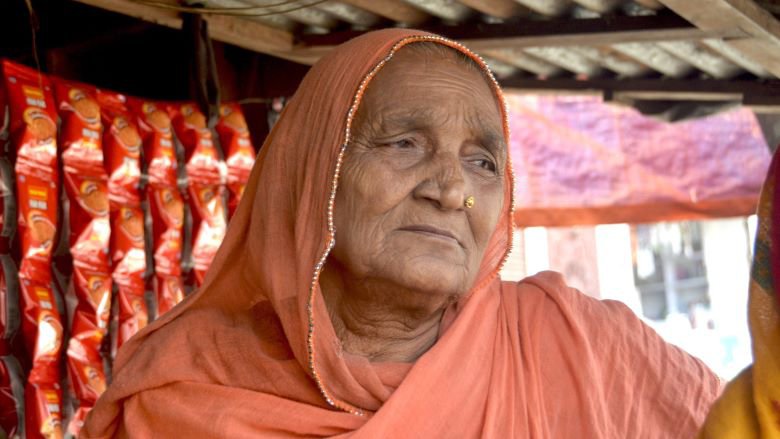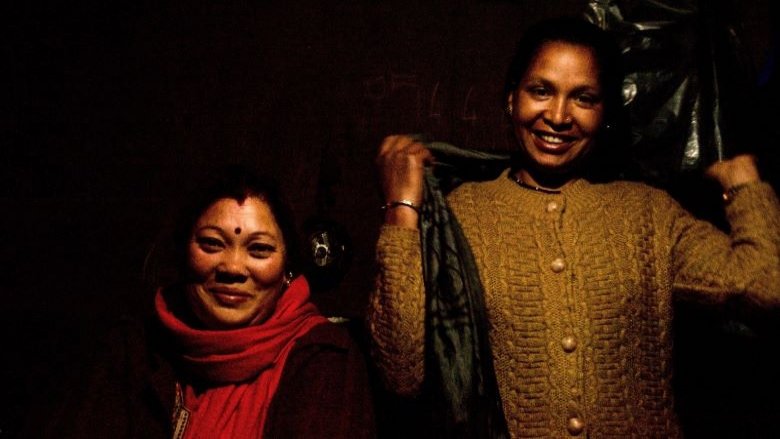Raibun's story
Raibun Khatun, 61, lives in Ward No. 2 of Rajbiraj Municipality. Her husband passed away in 2019 because of heart disease.
She says life has been a difficult ever since. She is herself ailing because of respiratory illnesses as well as heart problems.
"I buy essentials such as medicines, flour, and cooking oil with the money," she explains. She is also able to use the money to rent a small shack from where she runs a modest tea stall.
The earnings are barely enough to turn into savings. "Most of the money is used to buy new stock of biscuits and milk," she says. She lives in a cramped corner of the tea stall as she had to sell her house after her husband's death to pay debts.
She cooks her daily meals in the little stove she bought for the tea stall.?
Raibun says the allowance has been a blessing to the community. There are many women in her community who need the grant for daily expenses, as there have been many cases of excessive drinking and physical ailments among the men in the community, leading to early deaths. The women try to be there for each other and help in times of need.?
She hopes the government increases the allowance, especially for the winters, as the change of seasons greatly increases expenditures in the Terai.
Raibun says she is looking forward to the next payment to buy some warm clothes for the coming winter. "It's very tough in the winters, and it would have been terrible to live through if not for the government allowance," she says.



